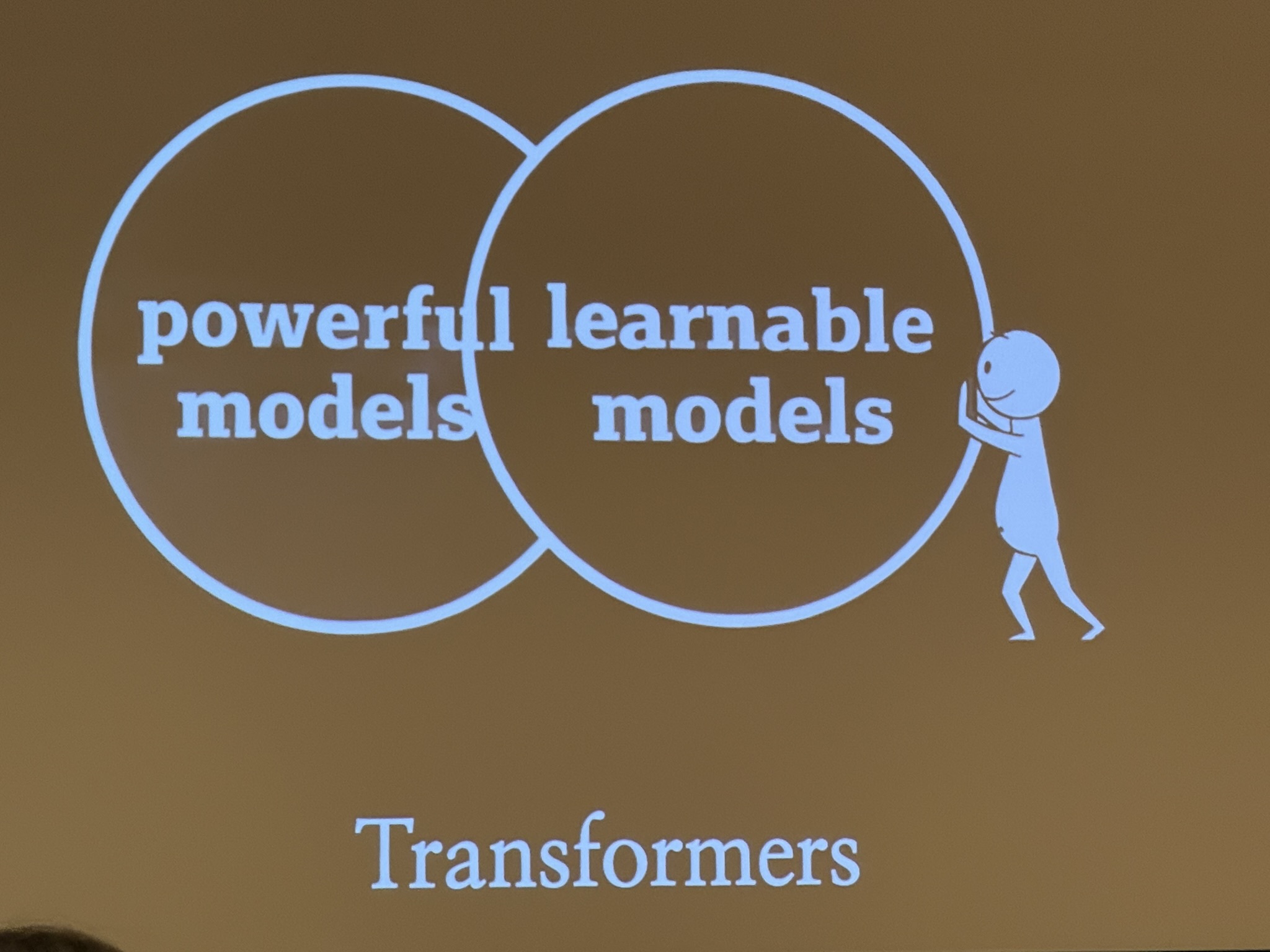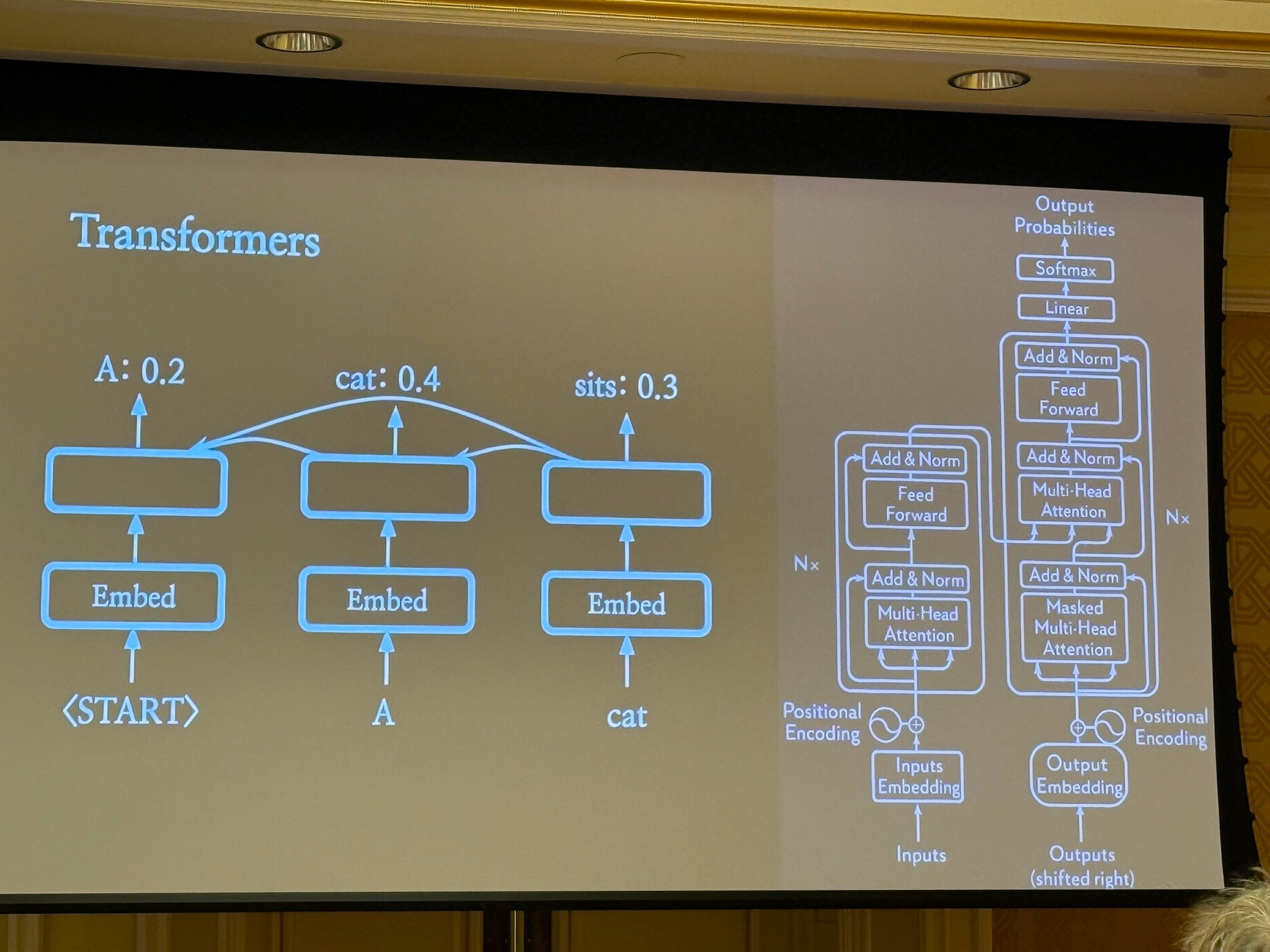
3 min read
11/11/2025
TAUS 2025: When Translation Becomes the Infrastructure of Reasoning
In 2025, Salt Lake City was more than just a conference venue. Surrounded by impressive mountains, the TAUS conference became the stage for a turning point, the moment when translation stopped being a task and became the infrastructure of multilingual reasoning.
The TAUS Massively Multilingual AI Conference 2025 brought together some of the brightest minds in our industry (from OpenAI and Centific to Translated, Dell, and Uber) to debate a question that echoed throughout both days: Are we evolving what we have, or reinventing everything we know?
I took part in the closing panel alongside Bruno Bitter, Jonas Ryberg, and Jennifer Wong, moderated by Anne-Maj van der Meer, whose informative takes you can read following the links. There, I shared Pangeanic’s vision for Domain-Specific Language Models (DSLMs) and Gartner’s prediction that small, specialized models will dominate the market by 2027/28. But above all, we shared a conviction: the future of language will not belong to scale... it will belong to intelligence.
Learning from less: Łukasz Kaiser’s lesson
The conference opened with an interesting keynote by Łukasz Kaiser, researcher at OpenAI and co-author of the Transformers paper "Attention is all you need". Kaiser posed a deceptively simple question: How much data does a machine really need to learn? His answer set the tone for the event: machines must learn from less data, but reason more.
He showed how reasoning models no longer respond from memory but generate their own “chain of thought” before answering. This new type of artificial reasoning, still clumsy in poetry or low-resource languages, is redefining how machines understand language itself.

At Pangeanic, we have been exploring this territory through Deep Adaptive AI Translation and ECOChat, technologies that combine automatic translation, contextual reasoning, and specific retrieval-augmented generation (RAG). These systems don’t translate literally; they don't summarize tons of users' information; they think in context. And that, precisely, was the central theme at TAUS 2025.
The legacy of machine translation
Philipp Koehn, one of the founding figures of modern MT, reminded everyone that the Transformer was born from translation research. His talk was a masterclass in scientific humility: machine translation thrived not because it claimed to have solved the problem, but because it kept learning from it.
His insistence on evaluation (both automatic and human), data openness, and connection with real cases explain why translation was the discipline that gave rise to generative AI. That spirit remains alive in the European projects we have led and continue to lead, where AI is built on data quality and traceability, not on accumulation.
From data to knowledge
In his keynote, Paco Guzmán (Handshake AI) reframed the essence of artificial intelligence with a line that resonated across the room: “Your data is your intellectual property.” His concept of Frontier Data aligns deeply with our philosophy at Pangeanic: there is no AI without curated data, and no trust without traceability.
For years, we have worked to create ecosystems of clean, ethically managed data: Noise Datasets, Image Datasets for AI Training, and platforms like PECAT, which unifies multimodal segmentation and annotation. Intelligence is not generated; it is cultivated. Each human review, each post-edit, each comment in a workflow is, in reality, a fragment of reasoning that feeds the model. TAUS reminded us forcefully: we are moving beyond translating texts to begin translating experiences.
The end of the monolith and the rise of agents
Wayne Bourland (Dell) took this insight into enterprise architecture. The old monolithic translation management systems are no longer sustainable in an agentic world. In their place, orchestration-driven, flexible, and interoperable systems are emerging.
This aligns perfectly with the direction we’ve taken at Pangeanic: a modular ecosystem of APIs, connectors, and specialized models (DSLMs) that communicate autonomously and contextually. As I mentioned during the panel, Domain-Specific Language Models are the answer to over-scaled general-purpose models: less energy, more relevance, more control. They are, in essence, reasoning AI: culturally aware and explainable.
The human value in the new linguistic economy
TAUS 2025 was not only about algorithms, it was about people. Sophie Halbeisen (Uber) spoke about the Multilingual Annotation Economy, where linguists no longer correct machines but train them. Marco Trombetti (Translated) defined singularity in translation as the point at which validating machine output takes less time than translating from scratch.
Both agreed on something I deeply share: the future of translation professionals is not to compete with AI, but to teach it how to think. At Pangeanic, we believe that human creativity, our ability to perceive nuance, irony, and emotion, remains the best teacher for artificial intelligence.
AI as infrastructure
Finally, Venkat Rangapuram (Centific) offered a systemic vision that should guide us all: AI is no longer a tool; it is infrastructure. And like all infrastructure, it requires solid foundations, interoperability, and ethical design.
Companies that understand this, that language is the semantic layer of their digital infrastructure, will build sustainable advantages. Those that don’t will remain trapped in their own legacy systems.
 One of TAUS roundtable discussions
One of TAUS roundtable discussions
Reinventing without destroying
The closing discussion of TAUS brought all threads together. Bruno Bitter, Jonas Ryberg, Jennifer Wong, and I explored how organizations can transform without losing their essence. The shared conclusion was clear: reinvention is not about discarding the past but restructuring it intelligently. It’s not about translating faster, but reasoning better across languages.
The number of words processed will not measure the future of our field, but rather the understanding achieved. At Pangeanic, we remain convinced that true AI innovation will not come from building bigger models, but from creating systems that are more conscious, more human, and more multilingual.
Pangeanic at TAUS 2025
Discover how Pangeanic is shaping the next generation of multilingual intelligence with Deep Adaptive AI Translation and ECOChat — our solutions that merge reasoning, privacy, and linguistic efficiency.


